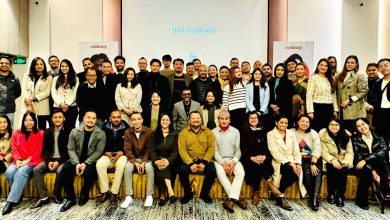MANILA – A new startup called I Am Cardboard Philippines (IAC) is planning to make virtual reality (VR) affordable and accessible to the masses with cardboard, a team of tech and creative whiz kids and tons of Filipino ingenuity.
VR has been showing slow promise for some decades especially in developing countries like the Philippines. While most VR apps are free, the main barrier for both brands and users is cost but companies like IAC are offering more affordable options to help boost adoption.
Starting this month, IAC will begin selling six VR headsets in partnership with Digital Walker, a popular gadget retailer with over a dozen stores.
The I Am Cardboard v2 kit (IAC v2) is one of the first to arrive in local shelves and also the most affordable model. But at just PhP 900, owners can a feel for what’s possible with modern virtual reality without a significant investment into professional headsets like the Oculus Rift that’s actually still in development.
IAC v2’s design is based on Google Cardboard, which made headlines in 2014 amidst the introduction of other headsets like Samsung’s Gear VR with a hefty price tag of $200.
Google Cardboard has two versions and the IAC v2 is inspired by the latest model launched last May 2015, which lets go of the janky magnetic switch for a capacitive tape-covered button that’s used to register a touch on the phone’s screen.
But rather than just use the original design, IAC plans to make its mark in the VR industry by designing and selling their own VR headset models.
Aside from IAC v2, the company is also offering studier models made out of ABS plastic like Discvr with better, classier ergonomics available in an assortment of colors. One model even comes with straps, making it look and work like an Oculus Rift.
IAC is the brainchild of Joseph Li, a Filipino designer based in the US, who have launched the company with two models which have gained massive support on Kickstarter. adobo confirmed that IAC Philippines will be the company’s first office globally.
IAC Philippines is not just aiming to becoming a retailer and designer of affordable VR headsets. Investing in special cameras that costs up to $60,000 up for the task of taking high definition video for VR, Ibba Rasul Bernardo, the operations head of IAC Philippines, shares that the company plans to become an agency dedicated to creating VR content.
IAC has five people on board for content development, headlined by Marco Biemann as content lead. Biemann is a celebrated director who recently won Best Short Documentary at the 2014 Cannes Short Film Festival for “After the Storm – A Shark’s Tail” which explores the aftermath of Typhoon Yolanda.
Brands are its most immediate clients who are constantly on the hunt for fresh ways to execute ideas. IAC Philippines has hit the ground running, working with the Elements Music Camp, a development program for undiscovered local artists, to develop a 360-degree video for them.
Bernardo teased that IAC Philippines is working with an unnamed real estate company to develop what could be a virtual tour inside one of their residential projects. It’s an application that can only get more popular, Bernardo predicts, as technologies get more sophisticated and make previously inaccessible experiences like VR more affordable for the public.
“360-degree video is the new trend. I think we are completely lucky with the support of IAC Global and Joseph Li and that we are at the right place and time with this technology. We will be the first big brand who will be in this many stores and in a country with a growing appetite for it,” Bernardo said.










